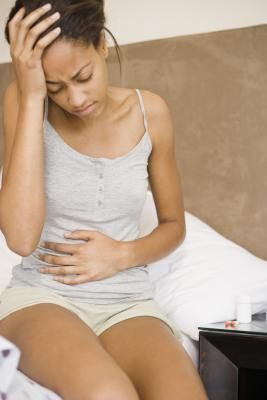4 Causes of fibroids in women
Cases of fibroids have been on the rise in recent times. Back in the olden days, women who are past the childbearing age were more prone to getting fibroids as opposed to right now.
Young ladies and mothers are battling severe cases of fibroids to the extent that they can have children anymore.
You might be wondering what fibroids are? What is the cause of fibroids? Well, you don’t need to fret, this article is meant to answer these questions and put you at ease. Hope that you find it helpful.
Fibroids are abnormal growths that develop in or on a woman’s uterus. Sometimes these tumours become quite large and cause severe abdominal pain and heavy periods. In other cases, they cause no signs or symptoms at all. The growths are typically benign, or noncancerous.
What causes fibroids?
It’s unclear why fibroids develop, but several factors may influence their formation.
Hormones
Estrogen and progesterone are the hormones produced by the ovaries. They cause the uterine lining to regenerate during each menstrual cycle and may stimulate the growth of fibroids.
Fibroids contain more estrogen and progesterone receptors than normal uterine muscle cells do. Fibroids tend to shrink after menopause due to a decrease in hormone production.
Also Read: @ 5 Signs of infertility in women
Family history
Fibroids may run in the family. If your mother, sister, or grandmother has a history of this condition, you may develop it as well.
Pregnancy
Pregnancy increases the production of estrogen and progesterone in your body. Fibroids may develop and grow rapidly while you’re pregnant.
What are the risk factors?
There are few known risk factors for uterine fibroids, other than being a woman of reproductive age. Factors that can have an impact on fibroid development include:
- Race. Black women are more likely to have fibroids than are women of other racial groups. In addition, black women have fibroids at younger ages, and they’re also likely to have more or larger fibroids, along with more severe symptoms.
- Heredity. If your mother or sister had fibroids, you’re at increased risk of developing them.
- Other factors. Onset of menstruation at an early age; obesity; a vitamin D deficiency; having a diet higher in red meat and lower in green vegetables, fruit and dairy; and drinking alcohol, including beer, appear to increase your risk of

Do you have any news or article you would like us to publish? Kindly reach us via outreach@t4d.co.ke or howtodoafrica@gmail.com.

























